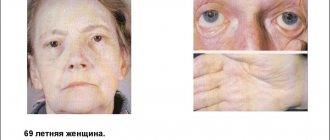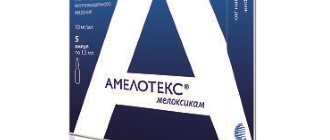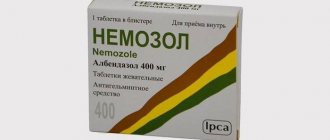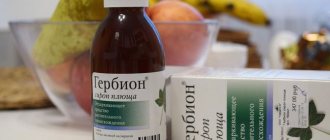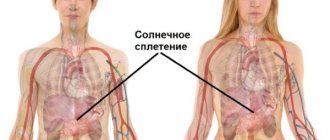Sheep feces is a type of constipation, a condition characterized by slow, difficult or systematically insufficient bowel movements. Depending on the individual characteristics of the body, different people have bowel movements with different frequencies. At the same time, both fecal eruption, which occurs two to three times during the day, and bowel movement, which occurs once every three to five days, can be considered normal options, but only on condition that the process does not cause discomfort to the person. In general, constipation is primarily indicated not by the frequency of stool, but by its consistency.
Sheep feces in humans means rare bowel movements, accompanied by the release of dense, compressed feces that look like sheep excrement. The main prerequisite for the development of this problem is considered to be the inability of the intestines to empty themselves in a timely manner due to various physiological disorders and nervous disorders.
MAIN SYMPTOMS OF SHEEP FAIR
It is quite simple to distinguish sheep feces from other types of constipation. This type of disease has a number of symptoms characteristic only of it, which include:
Sheep feces (ball-shaped feces) are the main sign of the disease
- Frequent unproductive urge to empty the rectum (the patient wants to go to the toilet, but cannot do so due to obstruction of excrement);
- Incomplete cleansing of the intestines (every trip to the toilet leaves a feeling of incompleteness of the process);
- Excessive tension during defecation (due to the density of fragments formed due to dehydration);
- Reducing the mass of excrement (less than 35 grams per day);
- Pain in the abdominal area (appears due to the accumulation of gases in the intestines and may be accompanied by nausea);
- General malaise (appears when the problem is ignored for a long time due to deterioration of the natural intestinal microflora).
The main symptom of sheep feces is fragmented bowel movements. The excrement comes out in small spherical pieces, similar in appearance to goat or sheep feces.
Authorized Products
Firstly, the list of allowed foods includes those rich in fiber. Fiber is found not only in fresh vegetables and fruits, but also in dried fruits and some types of cereals.
Secondly, the diet for this syndrome should be fortified and rich in microelements, in particular potassium and magnesium. Potassium is responsible for intestinal motility, and magnesium is responsible for the conductivity of its nerve fibers.
We should not forget about fermented milk products. They stimulate the growth of intestinal microflora, which normalizes intestinal motor function. Plant and animal fats envelop the intestinal walls, preventing toxins from “sticking” to them, and ensure gentle evacuation of feces from it.
The treatment table for constipation should contain the optimal amount of proteins, fats and carbohydrates, since their deficiency aggravates this condition.
The list of permitted products includes:
- bread products made from both rye and wheat flour, but coarsely ground, dry cookies (crackers) in small quantities, savory baked goods;
- soups with vegetable and diluted meat (low-fat) broth, borscht, cabbage soup, beetroot soup, fruit soups;
- low-fat varieties of poultry, fish and meat (veal, boiled or baked turkey);
- crumbly porridge from buckwheat, millet, oatmeal, barley, cooked in water with milk;
- fresh vegetables and salads from them, seasoned with vegetable oil (beets, cabbage, beans, zucchini, tomatoes, cucumbers, green peas, pumpkin and others);
- green vegetables that are a source of magnesium (lettuce, celery, broccoli, boiled green beans and others);
- ripe fruits and berries, fruit drinks, compotes, jams made from them, apples are especially useful;
- dried fruits, which are a source of microelements, prunes deserve special attention;
- vegetable oils, butter if tolerated;
- sour cream, kefir, low-fat cottage cheese, acidophilus;
- mild cheese;
- soaked herring, seafood;
- rosehip and wheat bran tea, vegetable juices;
- boiled eggs and steamed omelettes;
- pasta;
- honey.
CAUSES OF STOOL PROBLEMS
The main causes of stool problems and dry sheep feces are diseases of the intestines and stomach. Among them are:
- Intestinal dehydration (due to lack of fluid intake);
- Irritable bowel syndrome (deterioration of the intestinal tract);
- Functional bowel disorders (regular diarrhea, constipation);
- Atonic/spastic colitis (impaired intestinal motor functions);
Diarrhea, constipation, pain are the main symptoms of the disease - Neoplasms in the intestines (tumors in the intestines or surrounding organs).
All these reasons occur due to disruption of the intestines. In addition to them, there are also functional prerequisites for sheep constipation. The main ones are:
- Poor nutrition (increased amount of carbohydrates in the diet, eating mostly dense foods);
- Allergic reaction (individual intolerance to certain allergenic products);
- Disruption of the autonomic system (due to regular nervousness, stress);
- Dysregulation of the functioning of the intestinal tract (due to hormonal imbalance in the body);
- Lack of physical activity (mainly sedentary lifestyle);
- Taking medications (long-term treatment with antibiotics or irrational use of medications without a doctor’s indication).
Constipation can also occur as a side effect after surgery on the intestines or surrounding organs.
Diagnostics
A gastroenterologist examines patients with mushy stools. First, the doctor takes a medical history, performs a physical examination, and checks for symptoms of peritoneal irritation to rule out an “acute abdomen.” Then a set of instrumental and laboratory studies of the digestive tract is prescribed to clarify the cause of dyspeptic disorders. The most informative diagnostic methods:
- Sonography
. During an ultrasound of the intestine, the general anatomical features of the intestine are studied, dilated loops or thickening of the intestinal wall are identified, which serves as a sign of specific inflammatory changes. Targeted ultrasound of the liver helps to identify structural heterogeneity, neoplasms or abscesses. - Endoscopy
. A colonoscopy with examination of the entire colon is informative, which allows you to identify common causes of pasty bowel movements in older people - Crohn's disease, diverticulosis, neoplasms. If gastritis or duodenitis is suspected, an endoscopy with a biopsy is performed, a test for cell metaplasia by staining with methylene blue. - Radiography
. Irrigoscopy with double contrast effectively detects ulcerative-destructive disorders, intestinal abnormalities or tumor formations. During the X-ray examination of the passage of barium through the intestines, peristalsis is checked, motor dyskinesias are excluded, and inflammatory processes in the upper gastrointestinal tract are diagnosed. - Coprogram
. Pasty stool in an adult is visually assessed using the Bristol scale. Microscopic analysis is intended to determine signs of malabsorption and inflammation. Be sure to do an analysis for intestinal dysbiosis and culture of stool on nutrient media to confirm the infectious cause of defecation disorders. - Blood tests
. Liver tests and measurement of the concentration of bilirubin fractions are carried out to exclude concomitant damage to the biliary tract. With liver disease, the protein content in the blood is reduced. An immunological blood test is necessary to identify antibodies to intestinal pathogens. The hormonal profile must be examined. - Additional methods
. To confirm helicobacteriosis, they look for fecal antigen or perform a rapid urease test. In case of doubtful liver tests, duodenal intubation with bacterial culture of the obtained bile and RCP are performed. To exclude abdominal ischemia syndrome, Doppler ultrasound of the abdominal vessels is recommended.
HOW ARE NUTRITION AND SHEEP FLOOR RELATED?
Poor diet is one of the most common causes of sheep feces. Modern people do not have enough time to prepare healthy dishes and eat a full, slow meal. Quick sandwiches, semi-finished products and store-bought products filled with many additives help out. As a consequence, disruption of the intestines, its gradual dehydration and constipation, which can also manifest itself in the form of sheep feces.
Proper nutrition, which can prevent (and in some cases eliminate) sheep feces, implies several rules:
Poor diet causes constipation
- Liquid food. First courses stimulate increased intestinal activity and prevent hardening of feces;
- Regular meals. To ensure normal bowel function, you need to eat small meals several times a day. In this way, nutrients will enter the intestines evenly and their processing will not cause difficulties;
- Fiber and pectins in products. Will help normalize intestinal function.
Prohibited Products
Prohibited foods for constipation include those that cause flatulence, putrefactive processes and fermentation in the intestines.
You should also not consume food that irritates the stomach. For spastic constipation, food should be served in the form of purees (for example, vegetables) and minced meat, so as not to damage the intestinal walls.
Viscous porridges are not recommended, as they are slowly evacuated from the intestines and aggravate constipation. Products that contain a lot of starch have a similar effect. In addition, foods high in tannin should be excluded from the diet: they suppress intestinal motor function. Dishes that cause the gallbladder to “strain” are also best avoided.
The list of prohibited products includes:
- bakery products made from butter dough, puff pastry, fresh white bread;
- fatty meats and fish;
- legumes limited;
- slimy porridges (rice, semolina);
- spicy snacks, canned food;
- hot seasonings (pepper, horseradish, mustard);
- vegetables (radish, onion, garlic);
- jelly (lots of starch);
- limited potatoes;
- bananas;
- strong tea, blueberries (lots of tannin);
- chocolate, quince, barberry;
- mushrooms;
- confectionery products with rich cream;
- soups made from rich and fatty broths;
- fried eggs;
- sharp and fatty cheeses;
- mayonnaise;
- jelly, marmalade, pastille;
- alcohol;
- flour dishes (dumplings, dumplings, pies, especially fried ones).
GENERAL TREATMENT RECOMMENDATIONS
In the first stages of sheep feces, you can deal with the problem yourself. Home treatment requires the fulfillment of several prerequisites:
- Increasing the amount of water consumed during the day - to at least 1.5 liters (dehydration is the first step towards intestinal problems and, as a result, constipation);
- Correction of the diet (exclusion of fast food products, enrichment of the diet with fiber and pectins);
- Normalization of lifestyle (increasing physical activity, eliminating stress).
During treatment, you must avoid coffee, tea and some carbonated drinks, as they cause constipation. You can “shake up” your intestines with the help of simple physical exercises - just walk more or start running. You can also try mild laxatives, which are available from drugstore chains without a prescription.
Sheep stool is treated with diet, laxatives and prokinetics
Form
The shape of your stool can also tell you a lot about your internal health. Thin stool (resembling a pencil) should alert you. Perhaps some kind of obstruction is blocking the passage in the lower part of the intestine or there is pressure from the outside on the colon. This could be some kind of neoplasm. In this case, it is necessary to perform a colonoscopy to exclude a diagnosis such as cancer.
Hard and small feces indicate the presence of constipation. The cause may be an inadequate diet that excludes fiber. You need to eat foods high in fiber, do physical exercise, take flaxseed or psyllium husk - all this helps improve intestinal motility and make stools easier.
Stool that is too soft and clings to the toilet contains too much oil. This indicates that the body does not absorb it well. You may even notice oil droplets floating. In this case, it is necessary to check the condition of the pancreas.
In small doses, mucus in the stool is normal. But if there is too much of it, it may indicate the presence of ulcerative colitis or Crohn's disease.
BASICS OF DRUG TREATMENT
The cause of sheep feces is not always obvious. It is often hidden in serious intestinal diseases. An experienced specialist will conduct the necessary examination, give an accurate assessment of the state of digestion and prescribe appropriate treatment. Most often it includes:
- Mild laxatives;
- Antispasmodics;
- Prokinetics - to restore gastrointestinal motility at all levels.
With drug treatment, the problem of hard, dry, lumpy stool disappears within 2-3 days. The rest of the treatment period is aimed at completely normalizing the condition of the intestines and preventing diseases.
Sheep stool is an unpleasant problem, which at the initial stage is characterized by elementary inconvenience and discomfort, and at more severe stages can pose a serious threat to health. That is why it is not worth delaying her treatment, guided by the thought “it will go away on its own.” The fight against the disease should begin with changes in lifestyle and a visit to a gastroenterologist.
Diet for spastic constipation
Spastic constipation occurs due to spasms in the intestines that prevent the excretion of feces. To eliminate this condition, it is recommended to eat minced meat, boiled fish, low-fat cheese, honey, olive oil, pasta, jam, vegetable puree, strawberries, grapes, figs, plums, melons, pears, oranges, tangerines. Lamb and beef, mayonnaise, smoked cheese, pastries, chocolate, sauces, cakes, salami and white bread should be excluded from the diet.
Sample menu for day No. 1
Breakfast:
a glass of low-fat milk, rye toast with honey and butter.
Lunch:
a glass of apricot nectar and 2-3 cookies.
Dinner:
creamy zucchini soup, chicken with spinach, brown bread, some fresh fruit.
Afternoon snack:
300 g prunes.
Dinner:
a portion of carrot puree and 2 cutlets.
Sample menu for day No. 2
Breakfast:
1 bunch of grapes, St. John's wort decoction with honey.
Dinner:
stewed eggplants with tomatoes, boiled fish, rye toast, some strawberries.
Afternoon snack:
2 cookies and a couple of spoons of jam.
Dinner:
pumpkin puree and rosehip infusion.
Sample menu for day No. 3
Breakfast:
grape juice with wholemeal toast, butter and jam.
Dinner:
chicken soup, pumpkin or mashed potatoes with chicken.
Afternoon snack:
300 g prunes.
Dinner:
a glass of apricot nectar and an omelette with vegetables.
Diet for atonic constipation
Atonic constipation is caused by weak peristalsis. To normalize bowel movements, you need to regularly eat foods high in fiber, as well as consume enough fats to help contract the intestinal walls. Compared to the diet for spastic constipation, the diet for atonic constipation is less gentle.
The diet for bowel disease with constipation usually includes raw fruits and vegetables. They are rich in ballast, cellulose and fiber. Products adsorb water and irritate the intestinal nerve receptors, which, in turn, helps normalize peristalsis.



